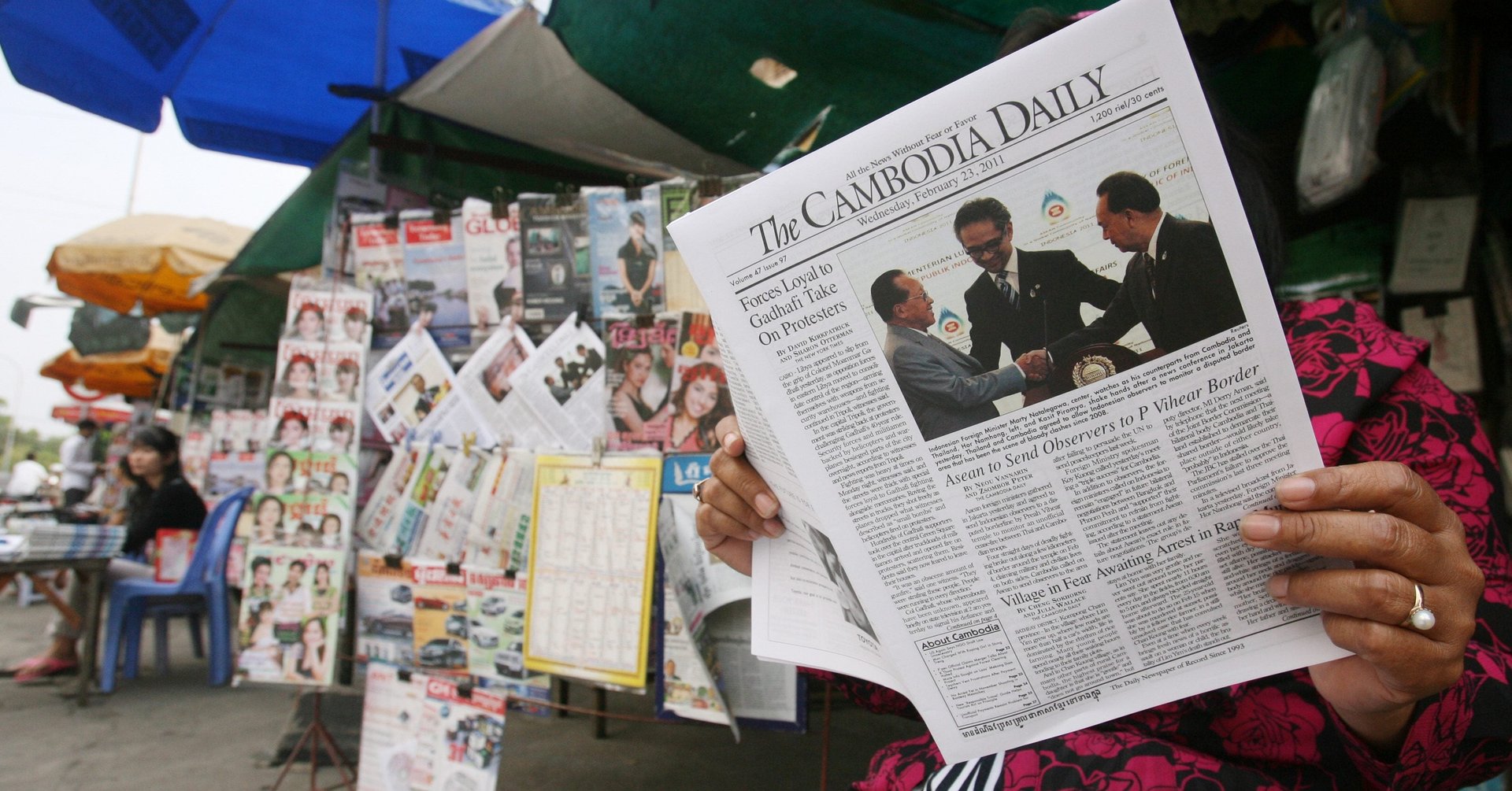Cambodia’s leader has told a newspaper to pay a $6.3 million tax bill or shut down
Cambodia’s government is making good on a threat—in part inspired by Donald Trump—to silence critical news outlets.


Cambodia’s government is making good on a threat—in part inspired by Donald Trump—to silence critical news outlets.
The government of prime minister Hun Sen is using back taxes—a tactic favored by authoritarian governments who want to go after opponents—to try to force the closure of the Cambodia Daily, an English-language daily. According to the paper, the government has threatened to shutter the paper by Sept. 4 if it doesn’t pay an unaudited tax bill of $6.3 million. Hun Sen this week called the paper the “chief thief.” The tax department’s letter to the newspaper was leaked on Aug. 4.
A Cambodian government spokesman said in February, citing Trump’s decision to bar news outlets from White House press briefings as justification, that certain news outlets should be gagged because they do not report the truth. Hun Sen, who has been in power for over three decades, also came out as a strong Trump supporter last year during the US presidential campaign.
Two Khmer-language radio stations were also forced to stop broadcasting Wednesday (Aug. 23). Radio Free Asia and Voice of America, both linked to the US government (paywall), had earlier this month been accused by the government of failing to pay taxes.
The Cambodia Daily, together with another English-language newspaper, the Phnom Penh Post, often covers topics deemed sensitive to the government that local-language publications shy away from. These include the country’s illegal logging trade, and the ruling family’s wealth. Today’s (Aug. 24) front page of the Cambodia Daily warned of a “new era of repression” in the country:
Cambodia is also cracking down on US-related organizations. On Tuesday, it said it was kicking out non-government organization National Democratic Institute (NDI), which is funded by the US State Department, accusing it of colluding with an opposition party ahead of elections next year. The government also cited a controversial law targeted at nonprofit groups that was passed in 2015, alleging that the NDI had operated in Cambodia without registering until June last year. China implemented a similar law this year, imposing onerous bureaucratic requirements on foreign NGOs to operate in the country.
A spokeswoman for the US State Department said at a briefing yesterday (Aug. 23) that the US is ”deeply concerned by the deterioration in Cambodia’s democratic climate in recent weeks.”
The government’s move against the NDI is reminiscent of the “foreign forces” rhetoric that is becoming more commonplace in regimes like Hungary, Turkey, and China. The Phnom Penh government is itself moving closer into China’s orbit, with China’s economic support (paywall) for the country emboldening strongman Hun Sen to crack down on civil liberties, critics allege.
The Cambodia Daily has written back to the country’s tax department requesting a proper audit of the back taxes allegedly owed by the paper to the government, according to the Phnom Penh Post. Deborah Krisher-Steele, the newspaper’s deputy publisher, told the BBC that the government’s move is intended to “intimidate and harass the Cambodia Daily… and others who speak the truth.”